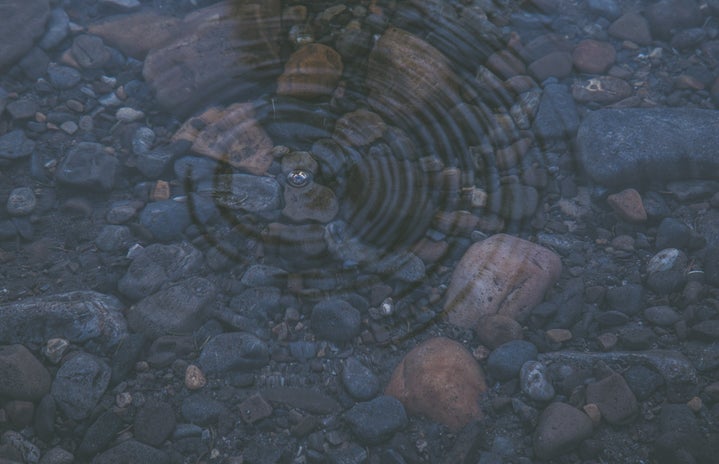As finals approach, I feel my anxiety increasing by the moment. Whether you suffer from chronic anxiety, panic attacks, or just normal amounts of high-stress during this time of the year, it’s important to have some techniques up your sleeve to help you deal with your symptoms. Over the years, I have figured out what works best for me, so I hope that you try some of my suggestions and alter them in ways you see fit so that you can feel better. Self-care is crucial all the time, but especially so when you begin to feel buried in work.
1. Breathing Exercises
This one is both the most obvious and the most effective, for me anyway. When you feel the physical side-effects of anxiety, you often involuntarily quicken your breathing. Hyperventilation not only worsens your symptoms, which may include rib, back, or chest pain, but it is also extremely dangerous. Breathing can help you get back to an equilibrium. This is easy, free, and available to you anywhere and at all times. I suggest closing your eyes, but of course you can try this technique with your eyes open. Really control the pace of your breathing. Try counting: breathe in through your nose to a count of four, and out through your mouth to a count of eight. Continue doing this until your focus leaves your pain and is replaced by only concentrating on your breath.
2. Zentangling
Zentangles are intricate, yet simple patterns that anyone can learn to draw. I learned how to Zentangle in a theater course at Denison and I have been obsessed ever since. While some people insist on using the special paper, pens, and shading tools, you can learn to Zentangle with any simple drawing supplies. Practice simple patterns with lines and weave them together, focusing on details and color. You will find that concentrating on fine motor movements draws you in; as a result, your breathing will slow and you should feel much better. I usually carry my Zentangling tiles and pens with me in my backpack and whip them out whenever I feel anxious. It’s also super fun to get creative with this activity and to look online at other tangles!
3. Yoga
Physical activity often helps distract your mind from the stresses of your day. It offers release and benefits you in other ways all at once. While I am not a yogi, I do enjoy practicing simple yoga when I can, especially with others. You do not need to join a class, have a special mat, or own a fancy pair of leggings to do some yoga in your living room. Watch a YouTube video, sit in a quiet spot, and take some time for yourself. Stretch your body and practice some of your favorite poses. Mindfulness meditation and yoga alter your mind and body, so give it a try!
4. ASMR
ASMR, or Autonomic Sensory Meridian Response, refers to a feeling of well-being combined with a tingling sensation in the scalp and down the back of the neck, as experienced by some people in response to a specific gentle stimulus, often a particular sound. Although I have never experienced this physical response to watching ASMR, I do find it relaxing and satisfying to watch these videos on YouTube from time to time. Apparently, people love to fall asleep to these relaxing sounds, which may include anything from crunching ice, to playing with slime, or tapping on a desk.
5. Oil Diffusers
If sight, touch, or sound are not your thing, try an olfactory relaxation technique. I absolutely love lighting candles to help me relax, but oil diffusers, wax melts, and plug-in air fresheners are all awesome, easy, and customizable tools to help you de-stress. I recommend checking out Bath & Body Works’ holiday candles if you want some festive scents to distract you from your day. Marshmallow Fireside and Fresh Balsam always make me feel way better, especially when coupled with a cup of hot chocolate.
6. Animal Cuddles
I don’t have pets at home to get regularly-scheduled cuddles from, so I rely on close-by friends, family, and even babysitting gigs to spend time with animals. Recently, for example, I was so stressed about finals that I spent four hours at my cousin’s house just playing with three kittens they were fostering. I felt so much better just getting my endorphins up while cuddling with those babies. If you don’t have opportunities like these near you, look into visiting and/or volunteering at a local animal shelter. You’ll get to cuddle and help animals at the same time. If you have less time to devote, think about dropping by a school event where you know there will be animals. At my school, we have a de-stress fest, an event where they bring masseuses and puppies to help students relax.
7. Avoid Too Much Caffeine
Finally, let’s touch on what not to do. One of the things that always makes my anxiety so much worse is drinking coffee during a stressful time. While it’s tempting to turn to caffeine when you are busy trying to get work done, I can tell you from experience that coffee can increase your heart rate, and by extension your breathing, which only makes you feel worse. Instead of chugging that Red Bull or Starbucks drink, take a power nap, regroup, exercise, or just take a well-deserved break. You can do this!



